Iran Has Never Been So Dependent On Grain Imports – Official
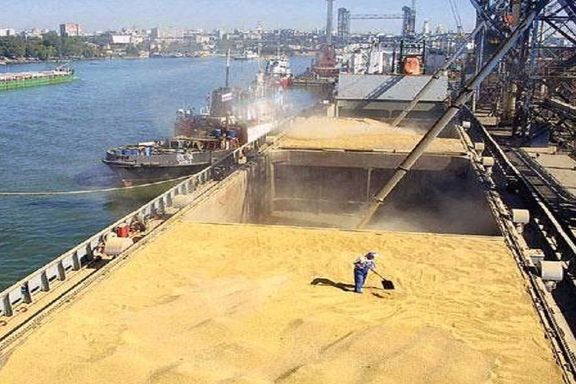
The head of the Flour Producers Association says this year Iran must import 20 million tons of grain, noting that the country has never been so dependent on imports.

The head of the Flour Producers Association says this year Iran must import 20 million tons of grain, noting that the country has never been so dependent on imports.
Mohammad-Reza Mortazavi said on Monday that grain imports will include 6 to 7 million tons of wheat, as Iranian state media rejected rumors on Tuesday that bread prices will increase following the elimination of subsidies.
According to data by Iran’s Ports and Maritime Organization grain imports stood at 16.5 million tons last year, about half of which was wheat while the rest were barley, corn and rice.
Referring to a five-fold increase in flour prices by the Agriculture Ministry, was expected, but “it would be better if the government first examined its effect on prices of other commodities”. Pasta prices officially increased as much as threefold on Monday.
He added that most of the country's wheat imports this year will come from “Russia or the Baltic states and even Europe”, highlighting that the Russian invasion of Ukraine has led to a global rise in wheat prices as well as almost all other agricultural produce. Ukraine and Russia account for more than a quarter of global wheat exports and nearly a fifth of corn.
In March, Nour News, affiliated with the secretary of Iran's Supreme National Security Council (SNSC), Ali Shamkhani, reported that Iran has signed a deal with Russia to import 20 million tons of basic goods, including vegetable oil, wheat, barley and corn.
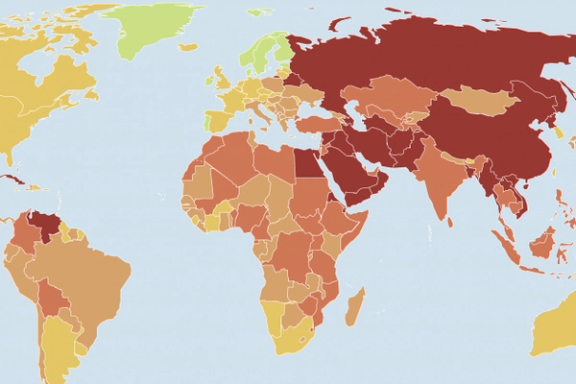
The 20th World Press Freedom Index by Reporters Without Borders (RSF) has put Iran at the rock bottom of the list, only better than Eritrea and North Korea.
Iran has ranked 178th out of 180 countries in the table, which is four places worse compared with the previous report published in 2021. In the 2022 index, even Turkmenistan, Myanmar and China rank better than the Islamic Republic.
The RSF calling 2021 for Iran “another tough year for press freedom” as “the two main leaders accused of abuses and crimes committed against journalists for 30 years, Ebrahim Raisi and Gholam Hossein Mohseni-Ejei, became, respectively, president of the republic and head of the Iranian judicial system. The result: an increase in arbitrary arrests and convictions, and journalists imprisoned and denied medical care”
Reza Moini, head of RSF's Iran-Afghanistan desk, told Radio Farda on Tuesday, "Unfortunately, this year Iran has reached the point where we call it the hell gate countries”.
Iran has jailed hundreds of journalists, writers and bloggers in the past three decades, accusing many of endangering national security for expressing their opinions. Some have died in prison, such as Baktash Abtin who died under custody on January 8, after being denied timely medical care for Covid-19.
The Index is a snapshot of the level of press freedom enjoyed by journalists and media during the calendar year (January-December) prior to its publication but when the press freedom situation changes dramatically in a country between the end of the year assessed and publication, the data is updated to take account of the most recent events, such as a major attack on journalists, or the sudden introduction of an extreme repressive policy.
Iran also has restricted access to internet for more than two decades, with thousands of websites blocked. Access is also blocked to major social media networks such as Facebook and You Tube.
Mohammaed Mosaed, a persecuted Iranian journalist who won the 2020 press freedom award of the US-based Committee to Protest Journalists told the award ceremony last year “Telling the truth in Iran is a crime.”
"Speaking the truth is dangerous in my country because the government fears not only the truth itself but also the audacity behind telling the truth and this has turned speaking the truth into a crime in my country," he said.
Mosaed was jailed had received a four-year sentence when he exposed corruption in the government.
The RSF called on the United Nations last week to take swift action to ensure Iran followed “international human rights law” over the treatment of jailed journalists.
Press freedom is defined by the RSF as “the ability of journalists as individuals and collectives to select, produce, and disseminate news in the public interest independent of political, economic, legal, and social interference and in the absence of threats to their physical and mental safety.”
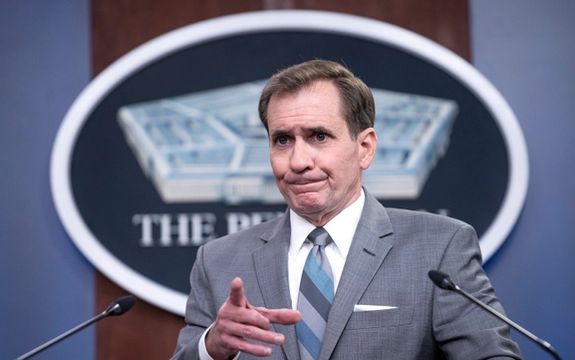
The Pentagon has declined to comment on Israeli claims over foiling Iranian plans to assassinate a US general in Germany, as Iran has also remained silent.
When asked about the identity of the target and when the alleged plot had been foiled at a press briefing Monday, the Pentagon Press Secretary John Kirby said he would not talk about it.
"I would just tell you a couple of things without getting into the specific anecdotes you cited there and I'm not going to talk about intelligence," he told reporters, adding that nobody in the Pentagon is "oblivious to the fact that Iran continues to be a malign actor in the region."
"They continue to support terrorist groups; they continue to develop a ballistic missile program. They obviously, even as they sit in negotiations, continue to develop certain nuclear capabilities. And they are harassing shipping and clearly pose a threat in the maritime domain," Kirby said.
Diplomatic sources told Iran International last week that an operative of Iran's IRGC's Qods Force held in a European, or possibly other Western country, had admitted to plotting assassinations in Turkey, Germany and France.
Iran officials and media, particularly state-run media, have not reported the incident or commented on it. However, in a commentary Monday, Nour News called the reports over the alleged plot "fabrication of the Zionists."
Nour News, a website affiliated to the secretary of Iran's Supreme National Security Council (SNSC), Ali Shamkhani, also accused the BBC's Persian channel of "running the show" and trying to "divert the attention of the public" from "Israeli crimes against Palestinians" and helping the Israeli government overshadow its domestic problems with "crude lies".
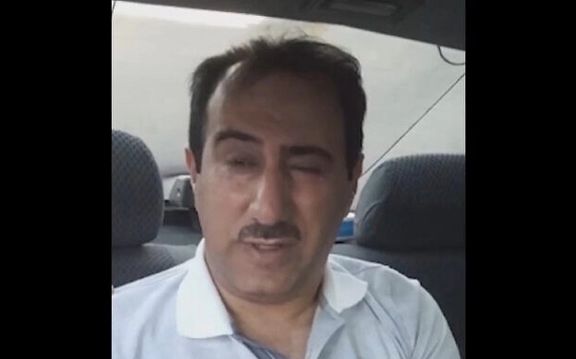
Within a short time, Israeli media released a short audio recording with a photo of a man introduced as 52-year-old Iranian national Mansour Rasouli confessing to involvement in the plot. Israeli television channels including Channel 12 which broadcast the recording, without providing a source, claimed it was made by Mossad operatives posing as Iranian secret service at Rasouli's home inside Iran but did not abduct him after the interrogation.
A statement from Israeli Prime Minister's Office said Monday the Mossad had "foiled" alleged IRGC plots to assassinate a US general in Germany as well as a journalist in France, and an Israeli diplomat in Turkey.
The alleged plots were ordered and funded by Iran's leadership and were to be carried out by the IRGC, the statement said.
Sarbaz-e Iran, a little-known Twitter account claimed on Sunday, without offering evidence, that Rasouli hailed from a village in Iran's West Azarbaijan Province. Sarbaz-e Iran claimed his information came from Rasouli's brother. The account said fearing being found out by the IRGC, Rasouli fled to Australia after the alleged Mossad interrogation and later arrested.
The Twitter account also claimed that Rasouli was recruited by the IRGC to carry out the operations but was not a part of the IRGC's Qods (Quds) Force himself. Citing Israeli officials, some Israeli media such as Walla news site have claimed that the incident took place a year ago and the man interrogated by the Mossad had connections to drug-smuggling networks.
The Pentagon spokesman also told reporters that the Department of Defense supports the efforts to restore the Iran nuclear deal as "no problem in the Middle East is easier to solve with Iran having a nuclear weapon," but still maintains a robust presence in the Middle East to protect its own security interests and those of its allies and partners in the region.

On May 1, 2011, then-President Barack Obama announced to the world the death of Osama bin Laden during a US commando operation in Pakistan called Neptune Spear.
In 2012, Nelly Lahoud was teaching at West Point when the CIA declassified the first 17 documents captured during the raid. She was asked to lead the analysis of those documents for West Point's Combatting Terrorism Center.
In an interview with 60 minutes on CBS, Lahoud, senior fellow in New America's International Security program and expert on al-Qaeda (AQ) and the ‘Islamic State’ (ISIS/ISIL), explained that in November of 2002, U.S. intelligence officials warned al Qaeda might be planning, "spectacular attacks" that could cause "mass casualties."
However, Lahoud also revealed that bin Laden wanted to replicate the 9/11 attacks in the US. “Bin Laden writes that rather than hijack a plane, operatives should charter one for their next attack on the US.” He adds if that's too difficult, they should target US railways.
During the 21-years period after 9/11, Iran maintained a relationship with al-Qaeda and its operatives, mainly driven by an anti-America agenda.
After two decades, the relationship between Iran and the terrorism network , which began in the early 1990s, is still being argued within the counterterrorism community and government officials, according to Asfandyar Mir, senior expert in the Asia Center at the United States Institute of Peace, and Colin P. Clarke, senior research fellow at The Soufan Center.

At the time, al-Qaeda and Iran made a deal that included al-Qaeda members training with Iranian intelligence operatives in Iran and Lebanon’s Bekaa Valley.
However, Tallha Abdulrazaq, an academic with expertise in Middle Eastern security affairs, explains that Iran has provided shelter to numerous Al Qaeda operatives over the years.
Bin Laden’s son Hamza is believed to be among those to have been harbored in Iran.
Even though mainly Shia Iran claims to be fighting extremism, Tehran has supplied both Sunni and Shia terrorist organizations with advanced weapons such as rockers and improvised explosive devices.

After bin laden moved from Sudan to Afghanistan in 1996, Iran provided al-Qaeda operatives logistical and travel support, as the US bipartisan report from the 9/11 Commission concluded.
“Intelligence indicates the persistence of contacts between Iranian security officials and senior al Qaeda figures after Bin Ladin's return to Afghanistan,” the report said, adding that evidence suggested “8 to 10 of the 14 Saudi "muscle" operatives traveled into or out of Iran between October 2000 and February 2001.”
By 2003, the relationship between Iran and al-Qaeda had grown turbulent, probably due to the terrorist network’s growing presence in Iran.
By 2010, during hard diplomacy and lots of assurances al-Qaeda secured the release of key members and their families in detention, while Iran achievedrelease of Heshmatollah Attarzadeh Niyaki, the commercial attache at Iran's consulate in Peshawar after his kidnap in Pakistan.
Tehran continued to allow al-Qaeda to transfer money via Iran, as well as to transit personnel and resources across conflict zones such as Afghanistan and Syria, according to the 2019 US State Department’s country terrorism report.
Iran’s geographic position neighboring Afghanistan and Pakistan also critically helped al-Qaeda to move across key battlefields when under direct US pressure there.
While Iran’s assistance enabled al-Qaeda to continuously challenge the United States and its allies, including Saudi Arabia, the Sunni terrorist group in return refrained from committing attacks inside Iran or against Shia populations in other countries in the region.
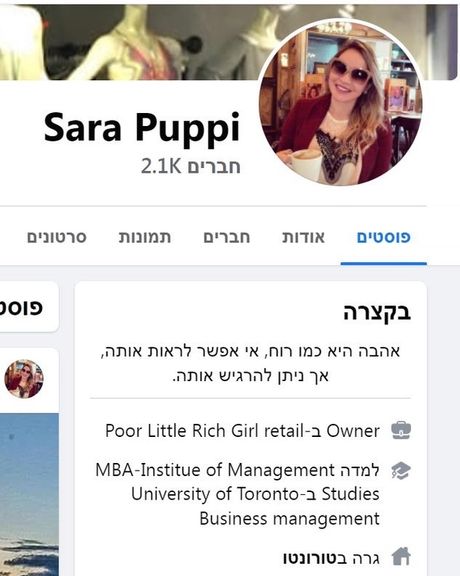
Iran used a fake Facebook account to gather information about Israeli targets who Iranian intelligence was interested in, Israel's internal security service revealed on Monday.
According to Shin Bet, the Iranian operator had created the profile under the name of Sara Puppi, pretending to be a young Jewish girl with connections and business in Israel.
The account added thousands of friends in a very short period, and after speaking with targets on Facebook, the operator would get the victims to switch to WhatsApp.
Shin Bet managed to put an operative in the Facebook account posing as a follower.
The Iranian agent asked the Shin Bet operative to gather information about Israeli figures and examined the operative's willingness to harm them. The Iranian tried to push the Israeli agent into accepting his/her offer with emotional and romantic manipulation as well as delivering sums of money equaling thousands of dollars.
The operator, who transferred funds to the Shin Bet operative using Bitcoins, used business reasons as a cover story for the assigned missions, such as revenge against those who owed him money or harming personal opponents and even a desire to harm LGBTQ+ people in general.
The targets of the missions also included representatives of companies and diplomats from Arab countries working in Israel.
Shin Bet says the operator also tried to get its operative he thought was working for him to put up signs against Russian President Vladimir Putin in an attempt to harm relations between Israel and Russia.
In February, Twitter and Facebook suspended pages and profiles of an Iranian disinformation unit that was targeting nationalist and ultra-religious Jews in Israel.
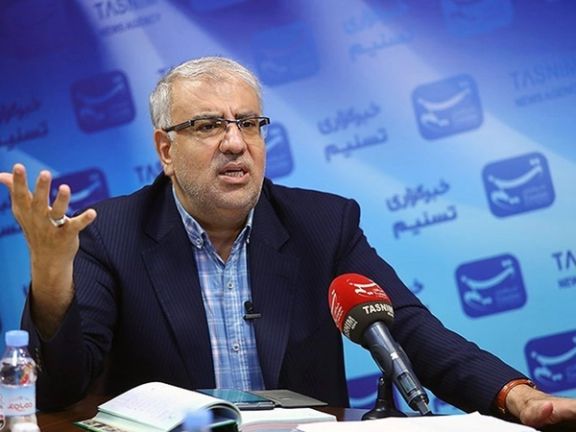
Iranian Oil Minister Javad Owji is in Venezuela to visit oil facilities and sign contracts in the energy sector, unnamed sources revealed to Bloomberg.
Heading a delegation of more than a dozen people, Owji arrived in Caracas on Saturday and visited the Paraguana refining complex in western Venezuela with an official of Venezuelan state-owned oil and natural gas company Petróleos de Venezuela PDVSA, Asdrubal Chavez.
According to the sources who asked not to be identified, the two were expected to sign energy cooperation deals on Monday.
Asdrubal Chavez is the cousin of the late president of Venezuela, Hugo Chavez, and the former president of Citgo a subsidiary of PDVSA, a transporter and marketer of transportation fuels and petrochemicals based in Houston, Texas.
Iran and Venezuela have been slapped with sanctions by the US, which doesn’t currently import oil from either nation, and has in recent years reimposed sanctions on Iranian state entities, including the national oil company NIOC, and in 2019 blacklisted PDVSA.
The two countries strengthened their cooperation in 2020, with Venezuela importing condensate from Iran, key to thin its extra-thick crude oil. Iran has also stepped in to help its South American ally with engineers, refined products and spare parts for its oil industry.
In March, a rare meeting between Venezuelan President Nicolas Maduro and high-ranking American officials in Caracas prompted speculation that sanction relief was on the table to free up oil supplies following Russia’s invasion of Ukraine.